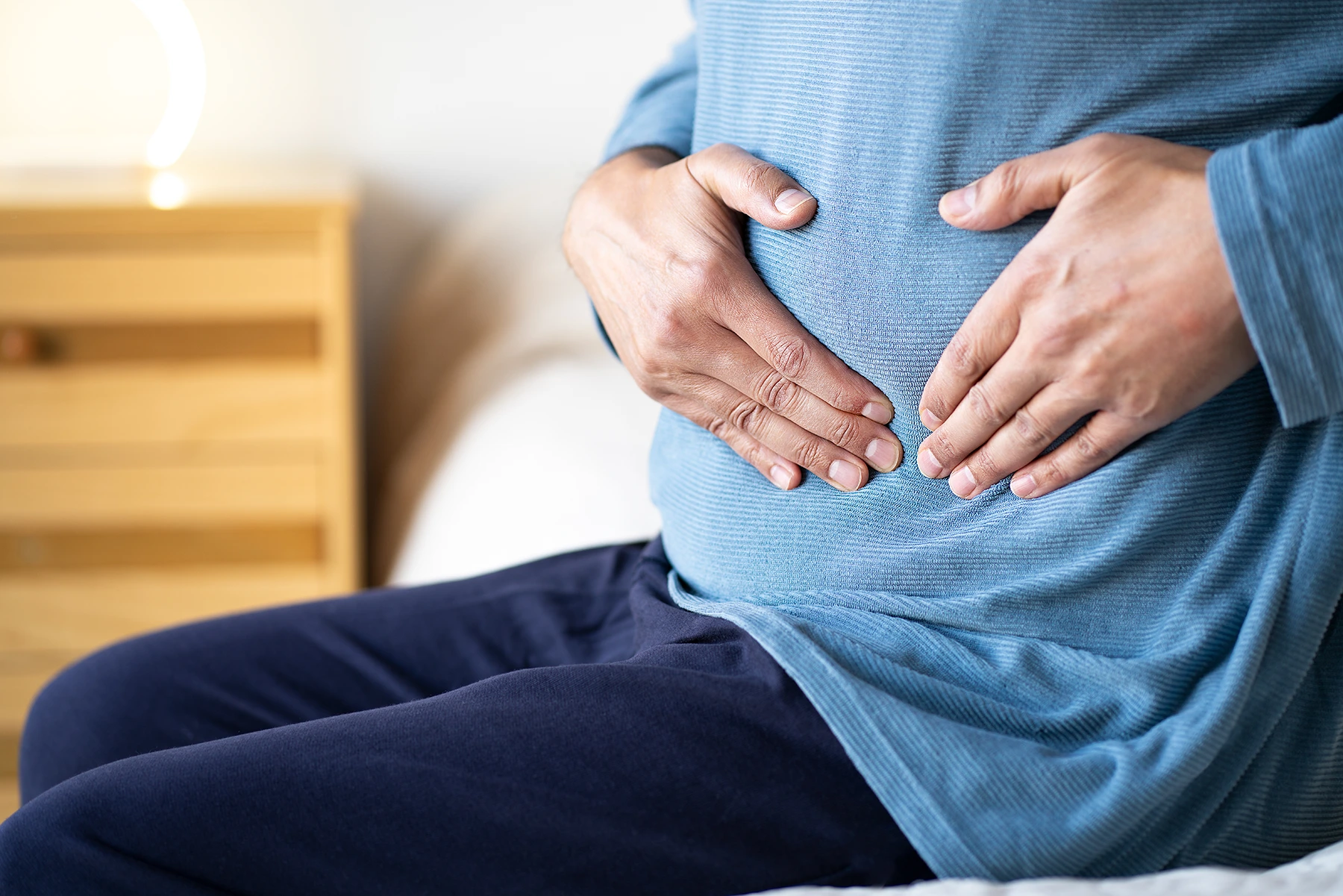Diverticulitis Demystified: What You Need to Know

When a medical condition affects more than half the population by the age of 60, one might expect it to be widely recognized. Yet, that’s not the case with diverticulosis — a condition marked by the formation of small pouches along the intestinal lining as we age.
Diverticulosis doesn’t cause symptoms. However, in about 4 to 15% of people, those pouches become inflamed, leading to diverticulitis.
“It certainly doesn’t help that the names are similar, so it can be confusing,” says Janyll Castineira, D.O., a gastroenterologist with the University of Miami Health System. “I try to help my patients remember that diverticul‘O’sis are p‘O’ckets and diverticul‘I’tis is ‘I’nflammation.”
Unlike diverticulosis, diverticulitis often causes severe and sudden symptoms. These include:
- Pain, typically on the lower left side of the abdomen
- Fever and chills
- Nausea and vomiting
- Constipation or diarrhea
The types of symptoms you experience may vary based on whether the diverticulitis is uncomplicated or complicated.
“Uncomplicated diverticulitis is when you have inflammation or infection that is localized to the colon without further complications,” she says. “Complicated diverticulitis, as the name implies, is when inflammation or infection is complicated, such as with an abscess or perforation.”
Fever, chills and overall malaise are more common with complicated diverticulitis, whereas pain, constipation or diarrhea can be present with either.
Any new or persistent case of abdominal pain is worth a doctor’s visit to determine if diverticulitis is at fault. If the pain is severe or accompanied by fever and chills, then a trip to the emergency room may be warranted.
How to treat diverticulitis.
Most cases of uncomplicated diverticulitis, though painful, tend to resolve quickly and are easy to treat. Remedies include a clear liquid diet for a short time, antibiotics, pain medication and possibly antispasmodic medication.
“Treatment depends on the severity of the episode,” says Francesca Raffa, M.D., a gastroenterologist with the University of Miami Health System. “Most cases are mild and can be treated in an outpatient setting. Your provider will likely recommend a liquid diet at first, over-the-counter pain medications, and will determine if an antibiotic course is appropriate.”
In more severe instances, treatment in a hospital setting may be appropriate. This may involve IV antibiotics and surgery for certain cases of complicated diverticulitis. “Surgery may be considered if an episode of diverticulitis is quite severe and/or involves a complication, like an abscess or perforation, that cannot be managed with medications alone,” says Dr. Raffa. “Surgery might also be offered if a patient has recurrent episodes of diverticulitis, but this is a very individualized decision.”
With treatment, most cases of diverticulitis resolve completely after about one to two weeks.
About 20 to 40% of patients may have a recurrent episode, but most never experience it again.
Moreover, some nutrition and lifestyle changes can significantly lower your risk of developing diverticulitis — and reduce the likelihood of recurrent episodes.
“Once someone has recovered from an episode of diverticulitis, eating a high-fiber diet (at least 25-30 grams of fiber per day) or fiber supplementation can help reduce future episodes,” says Dr. Raffa. “Leading a healthy lifestyle, including regular exercise, maintaining a healthy weight and avoiding tobacco use, has also been linked to reduced risk of developing diverticular disease and diverticulitis.”
Finally, Dr. Raffa recommends asking your provider if a colonoscopy is necessary after recovering from a diverticulitis episode. This can ensure that your colon is in good health and that you are not at risk of colon cancer.
Written by Wyatt Myers for UHealth.
Sources
Diverticulitis, MedlinePlus, 2024, https://medlineplus.gov/ency/article/000257.htm
Interview with Janyll Castineira, D.O., a gastroenterologist with the University of Miami Health System.
Diverticulosis and Diverticulitis, MedlinePlus, 2024, https://medlineplus.gov/diverticulosisanddiverticulitis.html
Interview with Francesca Raffa, M.D., a gastroenterologist with the University of Miami Health System.
Tags: diverticulitis, Dr. Francesca Raffa, Dr. Janyll Castineira, gastroenterology, stomach pain
